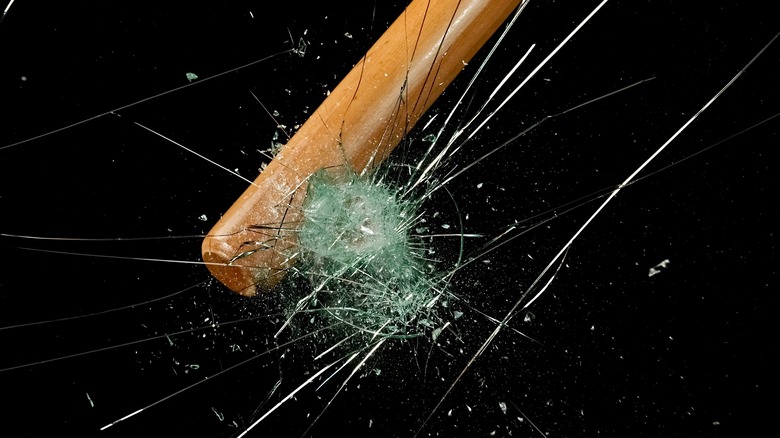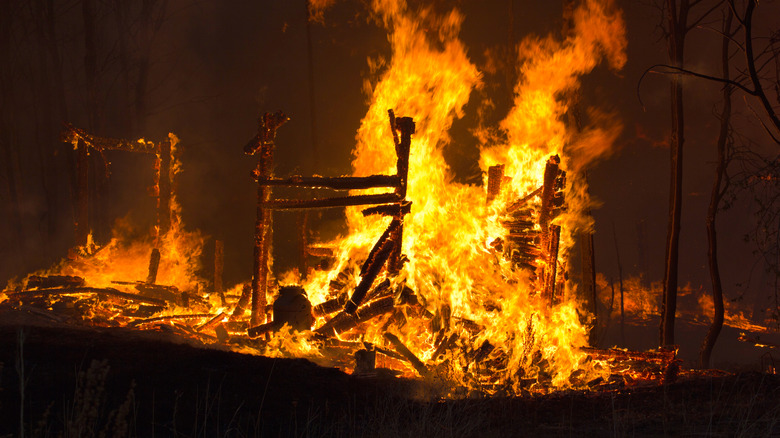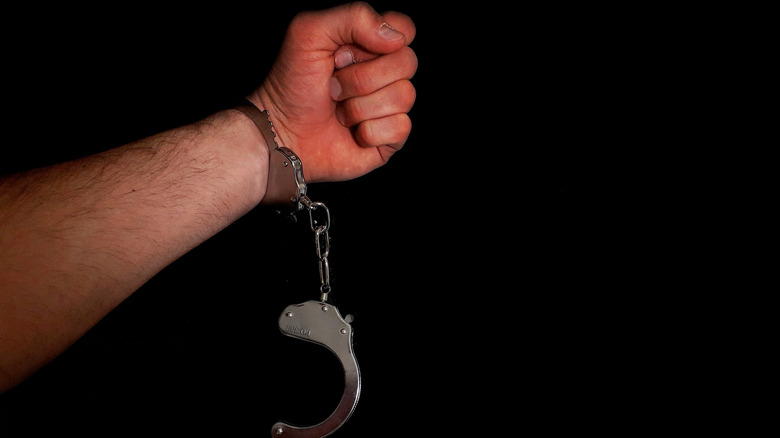The Dark Truth Behind The Violent Ice Cream Truck Wars Of The 1980s
An ice cream truck passing by the street is always a welcome sight, especially during the hot, summer months. You can depend on your friendly ice cream vendor to provide frozen treats that will beat the heat. However, that wasn't always the case in Glasgow, Scotland, in the 1980s, during what is now known as the ice cream truck wars. And no, that doesn't mean ice cream vendors throwing cold treats at one another.
"Mafia-style warfare broke out when two brothers decided to muscle in on an ice cream monopoly controlled by two families," read a 1979 headline of the Glasgow Herald (via Atlas Obscura). That was how violent the ice cream wars were at the time.
Ice cream truck businesses were abundant in Glasgow for decades before the ice cream truck wars. However, these vendors not only sold ice cream but also essential goods and supplies to people who had no access to nearby stores, and stores were offering delivery at the time. Because it was a booming business with access to a wide variety of customers, some ice cream trucks started selling illicit drugs, stolen goods, and bootleg items in poverty-stricken areas.
Ice cream truck turf wars
The ice cream truck wars pretty much worked like the stereotypical turf wars of gangs and mobs. If an ice cream truck was seen selling on another's turf, an attack was sure to follow. Glasgow in the '70s and '80s was filled with working-class citizens, and although it was being developed, some areas remained in poverty, per 9 News. Reports indicated that ice cream truck operators could make a good, honest living, but of course, selling stolen items will ensure more profit.
Ice cream truck vendors trying to make a good profit would want to sell on routes with the most customers. This started the turf wars, as the vendors fought for space and customers at profitable locations. Turf wars often resulted in smashed truck windows and slashed tires, per Owlcation. There were instances of robbery and assault as well. The increasing turmoil in the streets disturbed residents and the Glasgow police even assigned the Serious Crimes Squad, their top division, to stop the violence. The violence became more severe. Rocks, knives, and axes gave way to firearms. As Atlas Obscura reports, an 18-year-old was shot in the shoulder, permanently disabled as a result; an ice cream truck was robbed at gunpoint.
Escalation to murder
Although the ice cream truck wars were violent from the start, no one resorted to murder until 1984. Andrew Doyle, nicknamed Fat Boy, was an 18-year-old who worked as a driver for the Marchetti brothers' ice cream truck business. Tam McGraw, a known Glasgow criminal, wanted Doyle to sell drugs from the ice cream truck, but Doyle stuck to his principles and refused the offer. Doyle was also by other vendors bullied to change his truck route, but the teenager wouldn't budge. This resulted in a turf war, wherein Doyle was attacked with a shotgun while driving his ice cream truck. He was also attacked outside his home, according to 9 News.
On April 16, 1984, the intimidation tactics against Doyle escalated. A cloth soaked in gasoline was set alight on the front door of his home. The fire quickly spread throughout the structure where Doyle's family lived. Andrew was one of six innocent people who died in the blaze. Another was his 18-month-old nephew, per Owlcation. Only three people in the home survived. Investigators came up with two suspects, Joe Steele and Thomas Campbell, who owned ice cream trucks.
The aftermath of the blaze
Both Steele and Campbell maintained their innocence even after being convicted of the crime. Campbell protested his incarceration by going on several hunger strikes and refusing to have his hair cut. Steele, on the other hand, was able to escape prison three times, but was caught. Per Herald Scotland, a 1996 confession from a police informer, William Love, turned the case upside down. Love, who had testified that he overheard Steele and Campbell talking about being responsible for the crime, revealed that he lied. The two accused men were acquitted in 2004 due to wrongful conviction.
Joe Steele talked about his conviction in an interview, and he revealed that he was not even friends with Thomas Campbell. "I've hated him for years and blame him for destroying my life. I got to the stage where I couldn't even stand to see his face," he said (via 9 News). And although Steele claims his innocence, he also says that he knows who was responsible for the arson but that he won't reveal the identity. The only information he shared is that Tam McGraw was the mastermind behind the hit on Andrew Doyle, according to Herald Scotland. To this day, the people responsible for the fire and murders have never been caught.



